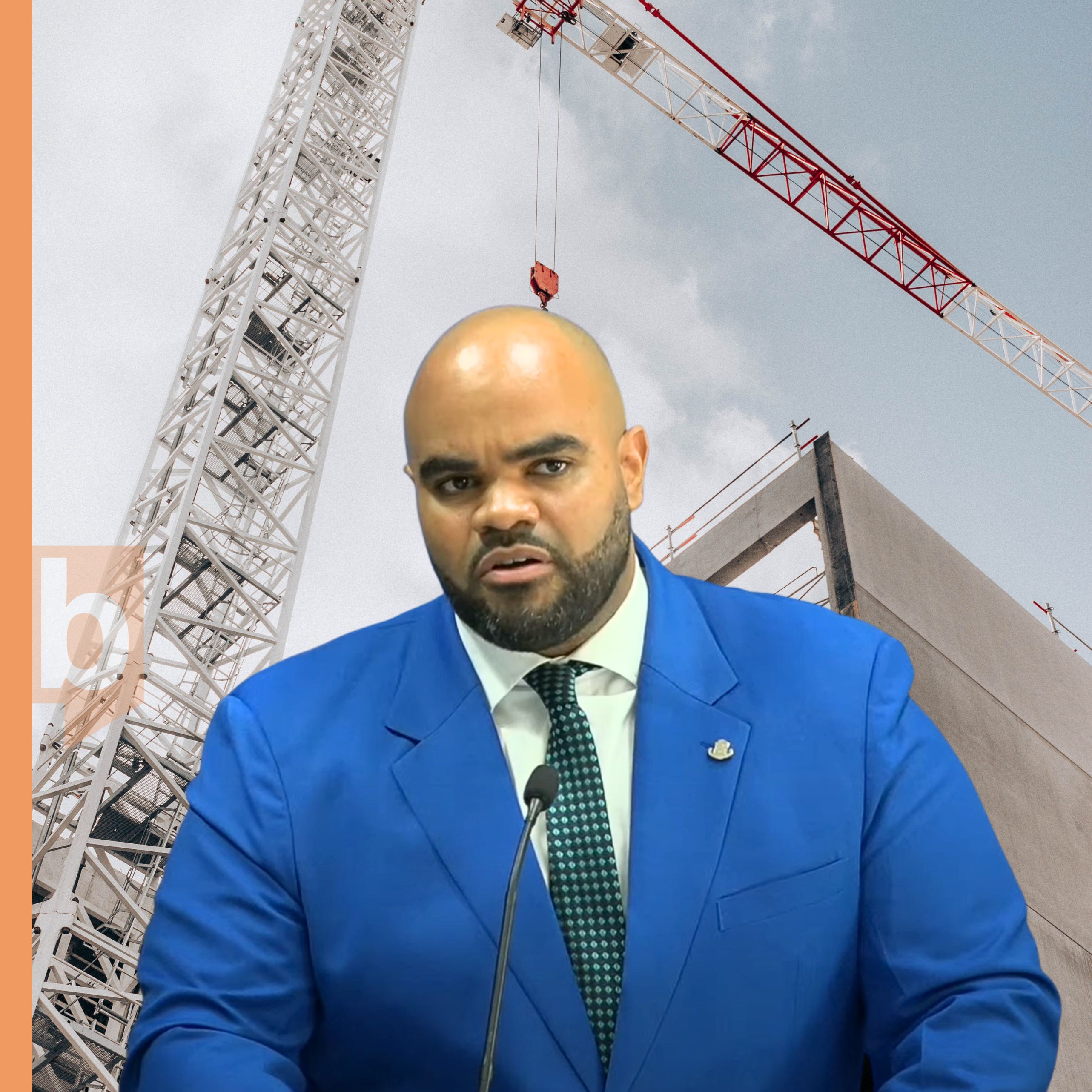GREAT BAY--On Wednesday, Minister of Public Housing, Spatial Planning, Environment and Infrastructure (VROMI), Patrice Gumbs, dismissed once again what he called the “recurring narrative” that he is against development. The Minister made clear that his position has never been about blocking progress, but about ensuring that growth takes place in a responsible and sustainable manner.
He was at the time responding to a question directed to him during the Council of Ministers LIVE press briefing which queried if he was against development vis-a-vis the denial of permits from his Ministry. “I think this continuous narrative that I am against development needs to be corrected,” said Minister Gumbs. “My family has been in construction and development for decades, so I could never be against what has been part and parcel of my own life. What I am against is unsustainable development.”
The Minister pointed to several examples where poorly planned or uncontrolled development has cost the country in the long term. He cited the Ebenezer hillside collapse, where government recently had to spend nearly XCG 900,000 (approximately USD 500,000) to repair damages caused by improper excavation and the lack of retaining walls some 20 years ago.
“This is not about saying ‘no’ to construction,” Gumbs emphasized. “It is about making sure we do it the right way to prevent disasters and to save money for other national priorities like healthcare and education.”
Minister Gumbs clarified that denials of building permits are not arbitrary or politically motivated. “None of the denials have been about development itself. They are based on whether the request is legal, permitted by zoning, or safe for the environment and community. I cannot, in good faith, allow construction if it risks the collapse of a hillside or creates hazards that we will be paying for years down the line.”
He also noted that every Minister of VROMI before him has had to deny permits, and that the role requires balancing the needs of growth with the realities of land constraints and environmental risks. “I am the first minister to try to strike a balance between what has happened in the past and where we need to go,” he said.
Minister Gumbs confirmed that his ministry is reviewing existing draft zoning laws and will present more on this in a subsequent press briefing. In particular, the Ministry is examining areas where current zoning restrictions, such as height limits, may no longer reflect modern demands.
He further explained that part of the current backlog in building permits is due to the reintroduction of civil works permits, passed into law in 2021. These permits are now mandatory for certain types of projects and have temporarily paused some applications as the Ministry finalizes the civil works manual.
“In addition, we face capacity issues. People are submitting building plans in large boxes, which are still being manually processed. This system, based on building codes dating back to 1935, does not match the reality of St. Maarten in 2025, where construction is happening on a completely different scale,” Gumbs said.
To address these challenges, the Ministry is finalizing the civil works manual, working on full digitalization of the permit process, and even exploring the possibility of involving third parties to help process the backlog. Staff are already working weekends to meet demand.
“The second biggest industry on this island is construction,” Minister Gumbs concluded. “I recognize how important this sector is for jobs and growth, but we cannot allow shortcuts that put people and the country at risk. I am not, and have never been, against development. I am against unsustainable development. The goal is not to stop progress, but to ensure that every project contributes to a stronger, safer, and more resilient St. Maarten.”
Join Our Community Today
Subscribe to our mailing list to be the first to receive
breaking news, updates, and more.






